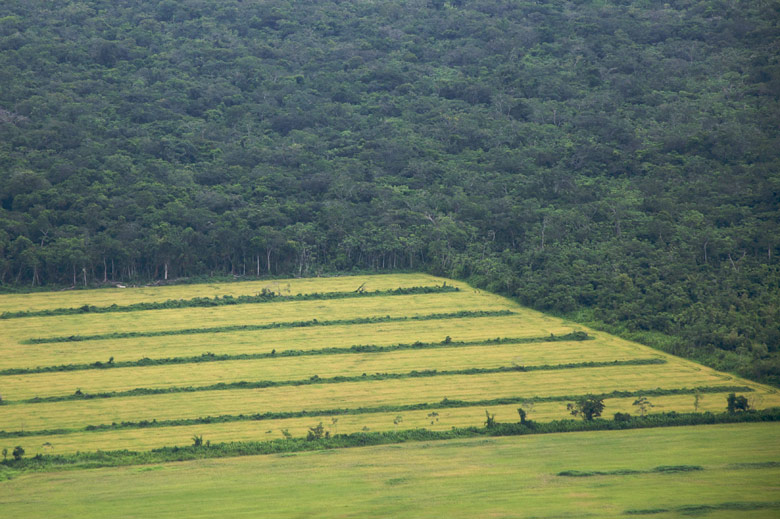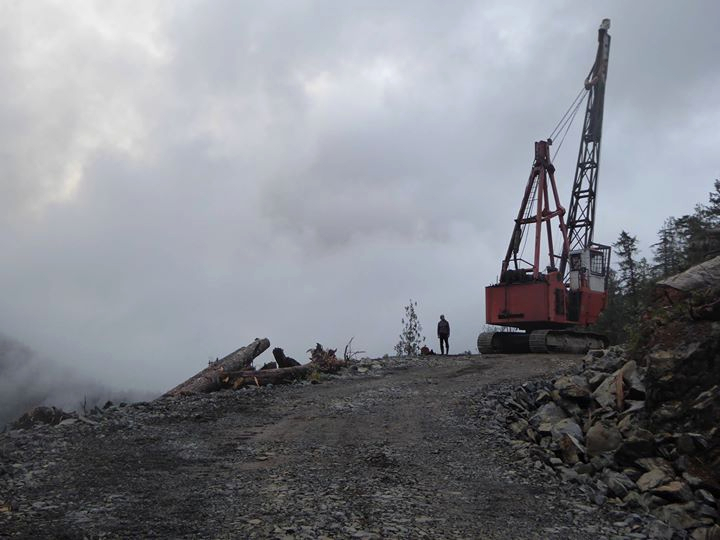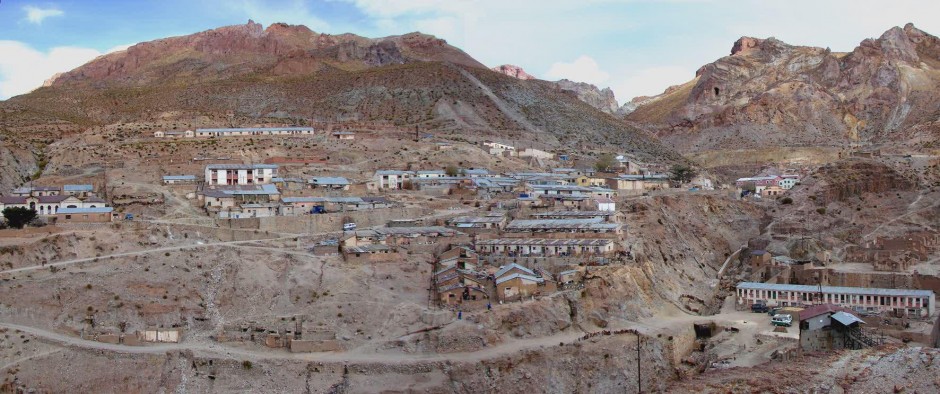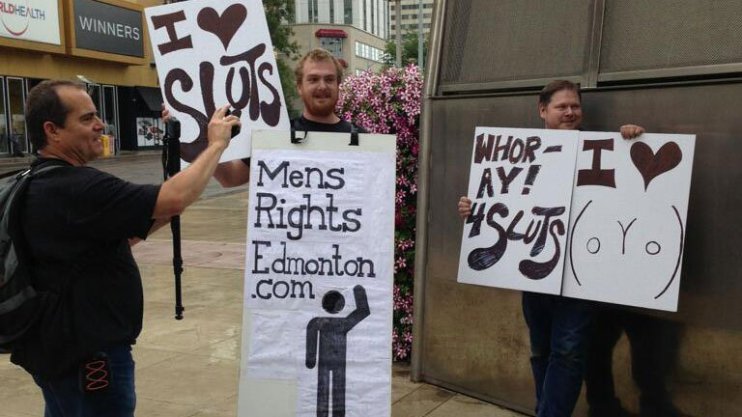
by Deep Green Resistance News Service | Apr 30, 2016 | Movement Building & Support
Why all permaculture designs should include supporting a culture of resistance
This essay originally appeared at Colorado Permaculture Guild
By Jennifer Murnan / Deep Green Resistance
Currently, permaculture operates in the realm of bright green environmental activism and seemingly believes that the current culture can be transformed. Why should permaculturalists choose to align themselves with the deep green environmentalists that support dismantling civilization in the belief that it is irredeemable, and, in fact, is destroying life on our planet?
Here are the few reasons that have occurred to me:
The Permaculture movement has always run counter to the beliefs and principles of global civilization. It views nature as a partner, a teacher, and a guide whom we honor and are totally dependent on. This is completely contrary to the cultural view of western civilization; that the natural world is here to serve us, to be used and abused at will, and that this abuse is justifiable.
Permaculture practice, by definition, is an attempt to depart from the model of exploitation and importation of resources necessitated by civilization. To live permanently in one place is the antithesis of the pattern exhibited repeatedly by civilizations. Civilizations cannot live in place. They violently import and exploit their human and natural resources, exhaust their ecosystems, experience population overshoot, and collapse leaving an impoverished land base in their wake. Western industrial civilization is currently playing this scenario out on a global scale. Permaculture not only cannot exist within the confines of civilization, it cannot coexist with a civilization that is devouring the world. I believe it is neither ethical or practical on the part of permaculturalists to attempt to do so.
Another reason lies in the common visions of the primacy of the earth shared by deep green and permaculture activists. The first ethic in permaculture is “Care for the Earth.” Without this basis, the second and third ethics, “Care for people,” and “Redistribute surplus to one’s needs,” are impossible. Healthy organisms produce a surplus as a way to feed and enrich the ecosystem in which they exist. Simply put, there is no health unless the earth is cared for first.
As Derrick Jensen states in Premise Sixteen of Endgame “The Earth is the point. It is primary. It is our home. It is everything.”
There are attitudes shared by Permaculture and the Deep Green movement. Permaculturalists believe in working with nature and not against it. Fostering a respect for all life is inherent in permaculture practice. Valuing people and their skills creates more diversity, creativity and productivity in permaculture and deep green communities. Alignment between Deep Green and the Permaculture movements is especially apparent in two permaculture design principles. Seeking to preserve, regenerate and extend all natural and traditional permanent landscapes is a goal of both communities. Preserving and increasing biodiversity of all types is recognized as being essential for survival by both Deep Greens and Permaculturalists.
A primary reason for permaculture to become part of a culture of resistance is that permaculture’s two guiding principles logically mandate dismantling civilization. The precautionary principle states that we should take seriously and act on any serious or destructive diagnosis unless it is proven erroneous.
Civilization has proven itself to be destructive to ecosystems since its inception. Western industrial civilization is causing the wholesale destruction of every ecosystem on Earth. Aric McBay writes, “The dominant culture eats entire biomes. No, that is too generous, because eating implies a natural biological relationship; This culture doesn’t just consume ecosystems, it obliterates them, it murders them, one after another. This culture is a ecological serial killer, and it’s long past time we recognize the pattern.”
A large scale and effective response to this destruction is necessary. The tactics of the environmental movement, up to this point have been insufficient. We are losing. It is time to change our strategy. This is why the Deep Green movement is advocating for all tactics to be considered as a means to stop the murder of the Earth. This includes, but is not limited to, practicing permaculture, legislation, legal action, civil-disobedience, and industrial sabotage.
There are problems with holding the permaculture movement as the sole solution to global destruction. While transitioning to sustainability in our personal lives is important, even more important is confronting and dismantling the oppressive systems of power that promote unsustainability, exploitation and injustice on a global scale. In fact, if these systems are left in place, the gains made by the practice of permaculture will be washed away in civilization’s tidal wave of destruction.
“Any economic or social system that does not benefit the natural communities on which it is based is unsustainable, immoral and stupid. Sustainability, morality and intelligence (as well as justice) require the dismantling of any such economic or social system or at the very least disallowing it from damaging your landbase,” said Derrick Jensen.
The second guiding principle of permaculture, “intergenerational equity,” also necessitates immediate action in response to the destructive force of civilization. This principle states that future generations have the same rights as we do to food, clean air, water and resources. This statement applies to all humans and non-humans equally. On a daily basis entire species are being eliminated from this planet as result of the activities of industrial civilization. “intergenerational equity” for them has ceased to exist and every day this destruction continues more species go extinct. Allowing this to continue is unconscionable.
Permaculture is based on close observation of the natural world, and I believe can only realize its full potential in a human community that acknowledges the natural laws of its land base as primary. Practicing permaculture in any context other than this necessitates subverting our principles and betraying everything that nurtures and sustains us, all that is sacred, our living earth. We can only truly belong in a culture of resistance.
Both permaculturalists and deep greens know that the earth is everything, that there is no greater good than this planet, than life itself. We owe her everything and without her, we die.
This is it, we need each other, everyone, every tactic we can muster in defense of the earth.
We have never been able to afford civilization.
Lierre Keith: “The task of an activist is not to navigate around systems of oppression with as much personal integrity as possible. It’s to bring those systems down.”

by Deep Green Resistance News Service | Apr 27, 2016 | Biodiversity & Habitat Destruction, Strategy & Analysis
By Zoe Blunt / WildCoast.ca
“I’m in love. With salmon, with trees outside my window, with baby lampreys living in sandy streambottoms, with slender salamanders crawling through the duff. And if you love, you act to defend your beloved.” — Derrick Jensen
Pacific Coast people have always defended the places we love. Most of British Columbia is unceded indigenous land; native peoples have never abandoned, sold, or traded their land away. Many fought fiercely against the power of the British Empire. Cannonballs are sometimes still found embedded in centuries-old trees along the shore – leftovers from the gunboats that tried to suppress indigenous uprisings in the late 1800s.

Nuu-chah-nulth war canoes (Edward Curtis, BC Historical Society)
A century later, descendants of the settlers have joined forces to battle corporate raiders. In the 1980s and 1990s, a groundswell of eco-organizing brought thousands of people together to stop clearcut logging in the cathedral forests of Vancouver Island’s Pacific coast, where timber companies were busy converting ten-thousand-year-old ecosystems into barren stumpfields and pulp for paper.
During those years, police arrested hundreds in Clayoquot Sound and the Walbran Valley at mass civil disobedience protests. Young and old alike sat in the middle of the logging roads and linked arms. The resistance went far beyond the peaceful and symbolic: unknown individuals spiked thousands of trees to make the timber dangerous to sawmills. Shadowy figures burned logging bridges and vandalized equipment. The skirmishes went on for over a decade.

Clayoquot Sound, 1993
We won a few battles. Several coastal valleys are protected as parks. But many of them have been logged. And now the logging companies are coming back for the valleys that remain unprotected.
One of the worst corporate offenders is Teal Jones, the company currently bulldozing the majestic Walbran Valley, two hours west of Victoria, BC. They are laying waste to a vibrant rainforest for short-term profit, without the consent of the Pacheedaht First Nation, the Qwa-ba-diwa people, or anyone else outside of government and industry. Teal Jones does not even own the land; it was taken from indigenous people in the name of the BC government sixty years ago.

Pacheedaht territory, Vancouver Island BC
This year, the elected leadership of the Pacheedaht First Nation threw its support behind building a longhouse in the contested valley, on the land that has sustained them for countless generations. At the same time, locals are pushing back against the logging by occupying roads and logging sites. This in spite of the company’s court order telling police to arrest anyone who blocks their work. Forest defenders are regrouping, but the destruction continues.
Women for the Walbran and Forest Action Network are ramping up to break the deadlock. We’re hosting direct action trainings to share skills and develop strategies for defending ecosystems. The agenda includes tactics like non-violent civil disobedience, occupying tree-tops, and backcountry stealth. We’ll have info on legal rights, indigenous solidarity, and more.

Tree-sit occupation, Langford BC. (Photo: Ingmar Lee)
Our adversary, Teal Jones, is a relatively small company. Its owners are relying on the police to protect their “right” to strip public forests on Pacheedaht traditional territory. Profit margins are slim, and lawyers are expensive. The forest defenders are poor, but we have community support and a wide array of strategies for beating Teal Jones at its own game. Every tool in the box: we can launch a mass civil disobedience campaign, carry out hit-and-run raids on costly machines, coordinate a knockout legal strategy, or deliver the tried-and-true “death by a thousand cuts” with a combination of tactics.
However it plays out, Teal Jones is on borrowed time in the Walbran. But that’s cold comfort when the machines are mowing down thousand-year-old forests like grass.

Photo: Walbran Central
The forest defenders do have certain advantages. On the practical side, we’re investing in the gear and training that will provide the leverage to win. We have a legal defense fund that’s both a war chest for litigation and a safety net for those who risk their freedom on the front lines. But our best defense is the thousands of people who love this land like life itself. Many live nearby and visit every chance they get, others came once and fell in love, and untold numbers have yet to see the Walbran’s wildlife firsthand, but they hold it in their hearts.

Photo: Walbran Central
Those who love the land are a community. We are the organizers, sponsors, and volunteers who drive this movement forward. Everyone who shares these values can be a part of it; no contribution is too small. We’re going all-out to defend the forests, rivers, bears, cougars, otters, and eagles of the Walbran Valley. They sustain us and we give back by fighting to protect them.

Walbran River, the heart of the Walbran Valley, spring 2016. (Photo: Walbran Central)
Remember: Forest Defenders Are Heroes!
by Deep Green Resistance News Service | Apr 17, 2016 | Mining & Drilling, Toxification
By Lierre Keith / Deep Green Resistance
Editor’s note: This first appeared in Mother Earth News on July 28, 2010. We are republishing it on the sixth anniversary of the Deepwater Horizon oil spill in the Gulf of Mexico.
Everything that’s wrong with this culture is in the story now pouring out of a broken oil rig 40 miles off the Louisiana coast. I don’t mean story as in fictitious. I mean it as a narrative, the account of successive events that builds into a history. That history is now washing up on the shore as oil-drenched corpses; nothing more than a quick, bracing glance is needed to know how those birds suffered. It’s also a history that’s waiting to turn cells toward the fierce hunger of cancer, settling into the lungs of children, erupting into blisters on the skin “so deep they’re leaving scars.”
We could find our beginning point, our once upon a time, in the first written story of this culture, the Epic of Gilgamesh, which chronicled the deforestation of Mesopotamia. The story hasn’t changed in four thousand years — it’s just quickened with the accelerant of fossil fuel. The pattern is basic to civilization, a feedback loop of overshoot, militarization, slavery, and biotic devastation, a loop that has tightened into a noose. That noose is planet-wide, encircling the earth in a siege beyond the wildest dreams of ambitious Caesars of the past. Nothing is safe, not the South Pole, not the strata 30,000 feet below the earth’s surface, not even the moon, which the power-mad had to “punch” last year. Ownership and entitlement have distilled into a sense of control so pure — and so rancid — that life itself is now being ransomed to the demands of the sociopaths at the top of a very steep, very brutal pyramid.
Where do we stand in that pyramid? Not where we were born — because anyone reading this is one of the globally wealthy — but where do we stand? That’s the question, baring the noblest values of which humans are capable: courage, moral agency, the loyalty that can slow-bloom into solidarity. Are we willing to face how corporations, on the steroids of fossil fuel, have gutted our democracy, our communities, our planet? That insight doesn’t require much intellectually, but it does require courage.
The loyalty will require letting our hearts open to break, as we watch the crabs trying vainly to escape the toxified water of their home and dolphins hemorrhaging. Include them in the clan of you and yours because they are already there; but we will have to fight for them once they become visible, real, a part of the circle called “us” that can’t be broken. Know, too, that two out of three animal breaths are of oxygen made by plankton: if the oceans go down, we go down with them.
Erased into nonexistence by the corporate storytellers are other “resources” as well. These resources dare to insist that they are human, humans with rights against the Kings no less. Most of the clean-up workers of the Exxon Valdez disaster are dead — their average life expectancy was around fifty. This is what it has always meant to be indentured, owned. The powerful get to use you until they discard you as worthless. But each human is priceless: our society is supposed to have learned that somewhere between the Emancipation Proclamation and the Universal Declaration of Human Rights. Besides the visible signs of trauma from losing their coast, their culture, and their livelihoods, there is an inchoate, bewildered grief in the faces of Gulf residents, a grief over the loss of their basic safety and hence their dignity: we are human, we have a right to our lives, how can it be that anyone is allowed to fill our lungs with poison? And the poison keeps coming, as the dispersant Corexit is dropped from planes “like Agent Orange in Viet Nam.”
Here’s my version of the story. A tiny group of wealthy people, backed by the legal system, the government, and, as always, armed force, is allowed to gut an entire ecosystem. When the people organize a nonviolent resistance movement, the leaders are arrested, put through an absurd trial, and then hanged by the military. The outrage of the international community can’t stop the smug sadism of power.
It’s a true story. The group was called MOSOP (the Movement for the Survival of the Ogoni People), and the most famous of the murdered leaders was poet Ken Saro-Wiwa. It has a sequel, too: MEND, the Movement for the Emancipation of the Niger Delta. MEND has said to the oil industry, “Leave our land or you will die in it.” Like the Gulf, the Niger Delta is knee-deep in oil sludge, and the once self-sufficient people are now impoverished, sick, and desperate. Think what you will of MEND’s direct tactics: they’ve reduced oil output by 30 percent and some of the oil companies are considering pulling out. That’s what happens when people resist: sometimes it works, happily ever after.
We need to break the spell of the corporate storytellers, the court magicians with their enticing tricks called CNN and MTV, what Chris Hedges — one of our last, true public intellectuals — calls the Empire of Illusion. In his words, they have us “clamoring for our own enslavement.” But all the fantasies and shiny toys in the world won’t help us when the planet is six degrees too hot for all creatures great and small, from brown pelicans to bacteria. This is being done for the benefit of essentially 1,400 people, the wealthy who control the world economy through the legal structure of the limited liability corporation. Yes, they have mostly destroyed our — that’s “our” as in “us, globally” — our ability to provide for ourselves, addicted us to their mass-produced culture of petulant cruelty, and won the rights that are supposed to adhere to human beings, not business entities. As Rikki Ott, Rachel Carson by any other name, makes clear, “Our government is beholden to oil and cannot imagine a future without oil. We the people have got to imagine this. We have to.”
And that’s where you come in, readers. It’s not just imagination for you: you’re already living another story, human-scale and woven into a living community like roots through soil. Your story is about patience and permanence, connection and commitment. It’s about people as participants in the world — in the carbon cycle, the water cycle, the physical, sacred cycle of life and death — not dominators. These are the values of animals who intend to live in their home for a long, long time. They are values that stand in direct opposition to the corporate masters. They are also the values that a real resistance needs.
A conquered people calls for a boycott. A sovereign people would shred BP’s corporate charter, seize their assets, and put the money of the world’s fourth largest corporation toward restoring the Gulf: the land, the people, the community. There are efforts to do exactly that. More, there are efforts to strike to the heart of corporate power: an amendment to the constitution that would strip them of the rights they have claimed: the Fourteenth Amendment, the Fourth Amendment, the Sixth, the Fifth… rumor has it they have their sights on the Second. They’ve staged a coup and won, and they’ve done what conquerors do: gutted the colony. And it’s not just the earth they’ve scorched, but the oceans and sky as well as the lungs of children and the livers of dolphins.
Call it what it is: a war. It’s not a mistake. It’s not even a set of loopholes that some naughty boys in a bad corporate culture exploited. Whether the oil gushed or was pumped and then burned, the result would have been the same: a planet destroyed — pelican by penguin by Ogoni child — for the benefit of a wealthy few.
It’s time to remember the animals — brave and hungry and loyal — that we are. So with your front paws, turn off all the corporate media flooding our culture and our children with moral stupidity and go dig in the dirt. It’s your dirt, our dirt, the collective home of a tribe called carbon. It’s our place, our people, an indivisible part of the story of us.
As for your hind feet, stand up on them and fight.

by DGR News Service | Apr 17, 2016 | Colonialism & Conquest, Human Supremacy, Prostitution
Featured image: Mining in Seite Suyos, Bolivia. (Credit: Wikimedia Commons user Mach Marco)
By Derrick Jensen / Deep Green Resistance
When living the dream means others will die
I want to tell you three stories of winning and losing, of selfishness and sacrifice, of this culture.
Story one. Last spring I gave a talk in a small farming community in northwestern Illinois. I drove there from my previous talk in Wisconsin, passing through prime agricultural territory, which is to say cleared and plowed and empty cornfield after cleared and plowed and empty cornfield. When I got to my destination, a delightful retired teacher took me to see the last remaining unplowed prairie in the county. It was more or less downtown, between a busy street and yet another field devoted to agriculture. As he led me across the slender tract, I couldn’t stop weeping at the sight of flowers who were once common and now barely hanging on, butterflies who were once common and now barely hanging on, a mother goose protecting her nest. My (human) host told me that even though this is the last six acres left—just six acres out of 360,000 in the county—the neighboring landowner refuses to stop applying insecticides and herbicides, which of course drift across the fenceline.
That evening, after he introduced me, I took the stage, sat down, and faced a roomful of members of this farming community. I thanked them for their hospitality, told them of my experiences of the previous twenty-four hours, then said, “I think the plow is the most destructive artifact humans have ever created. It destroys every living being on a piece of ground and converts that land to solely human use.”
The members of this farming community looked back at me. One gave a grim smile, then said, “Those plows paid for our houses.”
I nodded, smiled just as grimly, and responded, “That’s precisely the problem, isn’t it?”
Story two begins with me receiving an issue of my alumni magazine from the Colorado School of Mines, which featured an article titled “Hitting Paydirt.” The article tells stories of several “tremendously rewarding” discoveries. There’s a twenty-six-year-old CSM grad who discovered a “virgin deposit” of 2 million ounces of gold. Another grad discovered what became mines in environmentally ravaged Ireland; environmentally ravaged, war-torn, and rape-plagued Somalia; and environmentally ravaged, war-torn, rape-plagued, and slavery- and child-labor-infested Mauritania (the article, of course, only listed the countries, not their misfortunes, many of which are caused or exacerbated by resource extraction). But the story I want to focus on happened in Bolivia, where CSM grad Larry Buchanan, in the employ of a transnational mining corporation (with an address in the Cayman Islands for tax haven purposes, and having since that time gone through bankruptcy and changed its name, emerging as essentially the same company but without the debt), saw what seemed like a promising geological formation. He looked more closely, and found at the center of the deposit a village, complete with ancient stone church.
Buchanan describes it like this: “The silver deposit lay on the surface, mineralized ledges cropped out everywhere around and below a little indigenous village of rock, adobe and grass thatch, called San Cristobal. The cobblestone streets were paved with silver-bearing rock. The rock walls of the houses literally were laced with silver veins. You couldn’t take a step without touching silver. But somehow [sic] it had been overlooked [sic] by everyone [sic].”
He unintentionally answers his own question as to why these indigenous peoples had never put in an open pit mine: “The Quechua culture of southwestern Bolivia is one of multiple gods and spirits, one with a profound respect for the earth in general and curiously [sic], for rocks in particular. They believe rocks are their direct ancestors, living souls that speak, think, feel emotions, and have distinct personalities.”
Buchanan again: “We discovered nearly a half billion tonnes of those silver-plated ancestors of the Quechua. [Yes, he actually said that.] After a year of work, the engineers calculated it contained nearly a billion ounces of silver, enough ore to last seventeen years of intensive mining. The computer models proved it feasible: the profits would be more than enormous and the mine would become a money-machine. [Yes, he actually said that.] It was a company maker, a world-class discovery, a perfect setup.” The only thing in his way was “that poverty-stricken little village right on top of it. If we wanted to make a mine, San Cristobal had to go.”
But the village didn’t go down without a fight—between white people. Buchanan’s wife was against moving the village and forced Buchanan to sleep on the couch, only relenting when Buchanan agreed that they would move to the village for a while to bear witness to the destruction they were causing (or, to use his words, “the opportunities we were offering the people”). This strikes me as a classic example of the conservative/liberal one-two punch of oppression, with the conservative perceiving the oppression as good in itself, while the liberal bears witness to the oppression without doing much of anything to stop it. So Buchanan and his wife watched as people dug up bones from the village’s four-hundred-year-old cemetery to move to their new compound eleven kilometers away. Buchanan joined village elders as they crawled around the cemetery to beg forgiveness for disturbing the dead. He watched as bulldozers leveled the village in just four hours. It was all very difficult for him: “There were times I was literally brought to tears when I would contemplate what the people lost due to my discovery.”
What was once a living village where people resided with their ancestors in the walls, their gods all around them, is now a huge toxic hole in the ground. But it’s all good. Buchanan believes the people now live better lives in the compound; transnational corporations have made 70 billion dollars; and, best of all, Buchanan and his wife wrote a book about it all. “I came to learn life holds so much more of value than just a few billion dollars worth of silver,” he says. Having learned this valuable lesson, Buchanan moved on to other projects, and believes he has just recently discovered another billion-ounce deposit somewhere else.
Story three involves New Zealand tae kwon do athlete Logan Campbell, who funded his dream of reaching the Olympics through being a pimp. He made a lot of money providing women’s bodies for men to use. He even made a video to recruit women into working for him. The advertisement had lots of pretty pictures of women leaping for joy in fields, standing contemplatively on beaches, and sharing warm hugs with happy children. One female voice-over gushed, “When I was a little girl, I used to dream of a life of liberty.” Another asked, “Did you enjoy that? I sure did.” One said, “I’m living the dream.” And another said, “You deserve it.” The ad never did describe precisely what the “it” is that women deserve, but I think most of us would agree that most little girls don’t dream of economically coerced sexual relations with strangers not of their choosing, of years of post-traumatic stress disorder, of broken psyches and broken genitals and broken lives.
The point, really, is that Logan Campbell did get to live his dream. He went to the Olympics on the bodies of women, just like Buchanan’s “tremendously rewarding find” came at the expense of San Cristobal and its deities, and just as plows pay for houses at the expense of everyone else in the biological community. These are all dreams of fame, accomplishment, money, even what we consider necessities, like the way we feed ourselves and the way we financially accumulate. The problem is, all these dreams are someone else’s nightmare.
These stories are not merely what is wrong with this culture, they are the fundamental ethos of this culture: the fulfillment of personal, social, and cultural dreams at the expense of all others. No sane culture would in any way extol any of these stories. So long as these stories are seen as the fulfillment of dreams, where the subjugation of others is not seen as subjugating them but rather as helping them to “live the dream”; so long as this culture considers actions that lead to the destruction of ancient ways of life as “rewarding finds,” where your own murderous behavior is seen as “offering opportunities” for the victims; so long as we find it not only acceptable but right and just to convert the lives of others and the life-support system of the entire planet itself into fodder for us, there is little hope for life on this planet.
Originally published in the January/February 2013 issue of Orion

by Deep Green Resistance News Service | Apr 6, 2016 | Prostitution
Featured image: Men’s rights activists, known for their strong defense of women’s autonomy and freedom, at a pro-prostitution rally.
By Jonah Mix / Gender Detective
As the discussion grows around prostitution law in Canada, New Zealand, Germany, and other nations, a common defense of the sex industry keeps coming up – the idea that laws against prostitution tell women what they can and can’t do with their own bodies, making them paternalistic and anti-feminist. According to these supporters of the sex industry, prostitution is a choice a woman makes; legislating against it (even indirectly, through bans on the purchase of sex) is just another example of patriarchal control over women’s sexuality and a denial of their bodily autonomy. As one commenter put it on a recent blog post of mine, “There is nothing feminist about telling women what kind of sex they should or shouldn’t have. Nothing.”
This question about the interplay between free choice and regulation is a valuable one to have. Unfortunately, almost completely absent from the discussion is a second question: Does prostitution itself tell women what they can and can’t do with their own bodies? How do the demands on behavior made by the sex industry itself compare to the demands on behavior made by legal sanctions against that industry? Supporters of decriminalization are passionate about the impact sex buyer laws might have on women’s sexual freedom – but do they care much at all about the impact of what they’re fighting to decriminalize?
Before I go deeper, I want to make clear that I’m basing this look on the idea of prostitution as a service, which is by no means the only way people understand it. I myself don’t think we should see the sex that takes place in prostitution as a service. But since the people who talk about the sex industry in terms of free choice and bodily autonomy are most likely going to frame it that way, I’m not going to argue the point. Instead, I’m going to argue that the sex-as-service model is incompatible with the idea that we shouldn’t tell women what they can and can’t do with their own bodies.
So, from the start: If sex is a service, then it’s a service purchased like any other: A customer makes a request and offers compensation in return. You ask a plumber to unclog your toilet, and you give him reason to unclog it by offering twenty bucks an hour. You ask a French teacher to help you learn the language, and the French teacher agrees because you’ve offered to pay an enrollment fee in her class. No matter what the service is, every transaction boils down to the simple logic of I want you to do this, and I’m going to provide you with enough of something else that you have reason to oblige.
Without one of those two parts, there’s no transaction anymore. Requesting a service without offering compensation is asking for a favor or making a demand, and compensation by itself is a gift if no request comes attached. Obviously, a client demanding free sex from a woman in prostitution would be rape, and a man giving her money without requesting sex is no longer a client. So for prostitution to be prostitution, we have to have these two features: A man’s request and a man’s compensation.
This notion of a “request” is important. In almost any transaction, the person initiating the purchase of the service is the one who frames the exchange. When you go to hire that plumber, he doesn’t turn around and say, “You know, I see your toilet is clogged, but I’d rather fix this leaky faucet.” Your French teacher doesn’t get to decide the day’s lesson will be on the Baltic languages whether her class likes it or not. Professionals in the service industry might provide advice to customers or guide them from a position of authority, but they’ll never provide a service that doesn’t at least meet some need or desire on the part of the customer. If they did, the customer wouldn’t pay (why would he?) and the transaction would be over.
This doesn’t mean that the service provider’s desires are irrelevant – only that they don’t, by themselves, determine the transaction. For example, I’ve spent years working as an appraiser of rare and antique books, something I absolutely adore. I don’t think I ever appraised a book I didn’t want to appraise, and I went out of my way many times to grow appraisal jobs and guide them towards the best samples I could find. Between poring over old classics and digging up obscure treasures, it was a job I very nearly would have done for free. But it was still the customer’s desire, not mine, that determined what, how, and when I performed my labor. Or, to put it another way, while I said that I may never have appraised a book I didn’t want to appraise, I know for damn sure I never appraised a book the customer didn’t want appraised. How could I? If they didn’t want it, they wouldn’t have been my customer!
Of course, prostitution isn’t comparable to bookselling, even for the people who say it’s a job like any other. But the larger point stands: We’ve all worked a job we didn’t desire, and we all have desires for jobs that don’t and possibly can’t exist. But no one has worked a job their employer didn’t desire be done. In any service industry, it’s the person fronting the bill – he or she who requests the service – that determines what the service will be.
A lot of this seems like boring theoretical busy work, and it very well might be. But the implications for prostitution are enormous. Because prostitution is a service, and because men are overwhelmingly the ones requesting that service, it’s reasonable to assume based on the previous paragraphs that men are the ones who define what prostitution is and how it plays out in the global marketplace. Considering that prostitution involves a physical act, that means that prostitution is an industry in which men tell women what they can and can’t do with their bodies.
Just like a plumber is never going to leave your toilet overflowing while he redesigns your bathtub, and your French teacher is never going to start lecturing in Estonian, a woman in prostitution is never going to perform a sex act that doesn’t align with the desire of a male client. That’s not the same as saying she’ll never have any desire of her own for that sex act (although it’s worth asking if a meaningful proportion do). It just means that her desire isn’t the reason that sex act is being performed. Because I’m stuck at my parents’ house this weekend and their Internet is too slow for most of my video games, I decided to take the time and make a chart showing the intersection of male and female desire in the sex industry:

If a sex act is desired by both the male client and the woman in prostitution, then of course it’s likely to happen. And by the same token, there’s very little chance of two people performing a sex act if both find it unappealing. After that, though, the pattern diverges. If a woman in prostitution actually enjoys a sex act, but her male client doesn’t, his refusal to pay outweighs her desire. But sex acts desired by men and not by women are performed in prostitution all the time, whether through the grudging acceptance of the woman or through unambiguous sexual coercion. Even with a generous estimate, it’s likely that hundreds of women endure unwanted sex acts in prostitution for every man who does the same – or, to put it another way, male desire is literally hundreds of time more influential than female desire when it comes to what sex acts occur in prostitution.
This asymmetry exists everywhere in prostitution, not just in the actual sex. A quick search online for brothels and escort agencies comes back with a range of mannerisms, clothing, and presentation choices that could charitably be described as, well… narrow. Beyond a few specialty schoolgirl outfits, nurse ensembles, and one punk-themed “sex dungeon,” the vast majority of women on display are thin, white, wearing heavy makeup, and displayed in some form of lingerie. (The women who aren’t white are specifically marketed as submissive Asians, “fiery” Latinas, and even more explicit racial epithets for Afrikan women.) Exactly as you’d expect, the vast majority of aesthetic choices made in prostitution align with what men generally find arousing.
Of course, it’s theoretically possible that every single woman in these brothel and escort advertisements has an authentic desire to dress like a schoolgirl or in lingerie (although, again, it’s absurd to actually think that). Regardless, that’s not a reasonable explanation for why those styles are so commonly seen. Many women have an authentic desire to wear jeans and t-shirts. Others wear overalls, sweaters with pictures of woodland creatures, ballroom gowns, or knit scarves. But those are rarely, if ever, seen in prostitution – and, if they are, they would only be seen by men who specified that they had those precise interests. Just like in any other industry, women in prostitution have financial incentive to privilege male interest over any personal desires they may or may not have.
Reading blogs and articles by women in prostitution – including those who explicitly support the industry – you can see this male control extending even further into things like speech patterns, mannerisms, the way a woman laughs, the way she walks, and even their basic identity. I just read a post from a woman who was busy trying to find a more “sensual” name after a few clients told her they didn’t like her real one. Another said she asks men beforehand whether or not they want her to smile, because both “too much” and “too little” smiling can be a turn-off depending on their preferences. Read that again: A woman has to alter how much she smiles, while being penetrated, based on what a man requests. And this is the industry that liberals defend in the name of bodily autonomy?
Prostitution, as a practice, just is men telling women what they can and can’t do with their bodies. It’s men telling women how to use their bodies, how to move their bodies, how to dress their bodies. What men tell women do with their bodies is the primal guide for how prostitution functions; if we stopped, prostitution couldn’t function. Like all markets, supply responds to demand and the customer is always right. The problem is that the customer wants a fuckable object, not a human being.
Real freedom – not just for women, but for any human being – is incompatible with an industry where rent and food money depends on fulfilling the demands of a stranger. And while all workers suffer under capitalism, we at least tend to see factory work as an expression of control, not liberation. A coal miner isn’t free just because no one tells him he can’t mine coal. The minimum wage shelf-stockers at Walmart don’t have real bodily autonomy just because no one said they can’t take instructions from their boss. It’s a mystery to me, then, why suddenly the legalization of prostitution is seen as a win for women’s freedom, when the result is just a larger set of demands put on their bodies.
Now, I understand the twinge of indignation when some people hear talk about abolishing prostitution. And I understand why “Let women do whatever they want to with their bodies” is an appealing slogan. But if you really aspire to that goal, let me ask: Does that include the woman putting on a miniskirt because she knows she’ll make more than if she wears the jeans she finds more comfortable? Does that include the woman wincing through painful, unpleasant, or just plain boring sex because the alternative is homelessness? Does that include the woman alternating between faking and holding back smiles while a stranger penetrates her? Don’t those women deserve the right to do what they want to with their bodies, and not what the men they depend on for survival want to see done? You may not like that the law sets limits on what a woman can choose to do, but remember: It’s not the law that told her to change her very name for the sake of a man’s erection.












